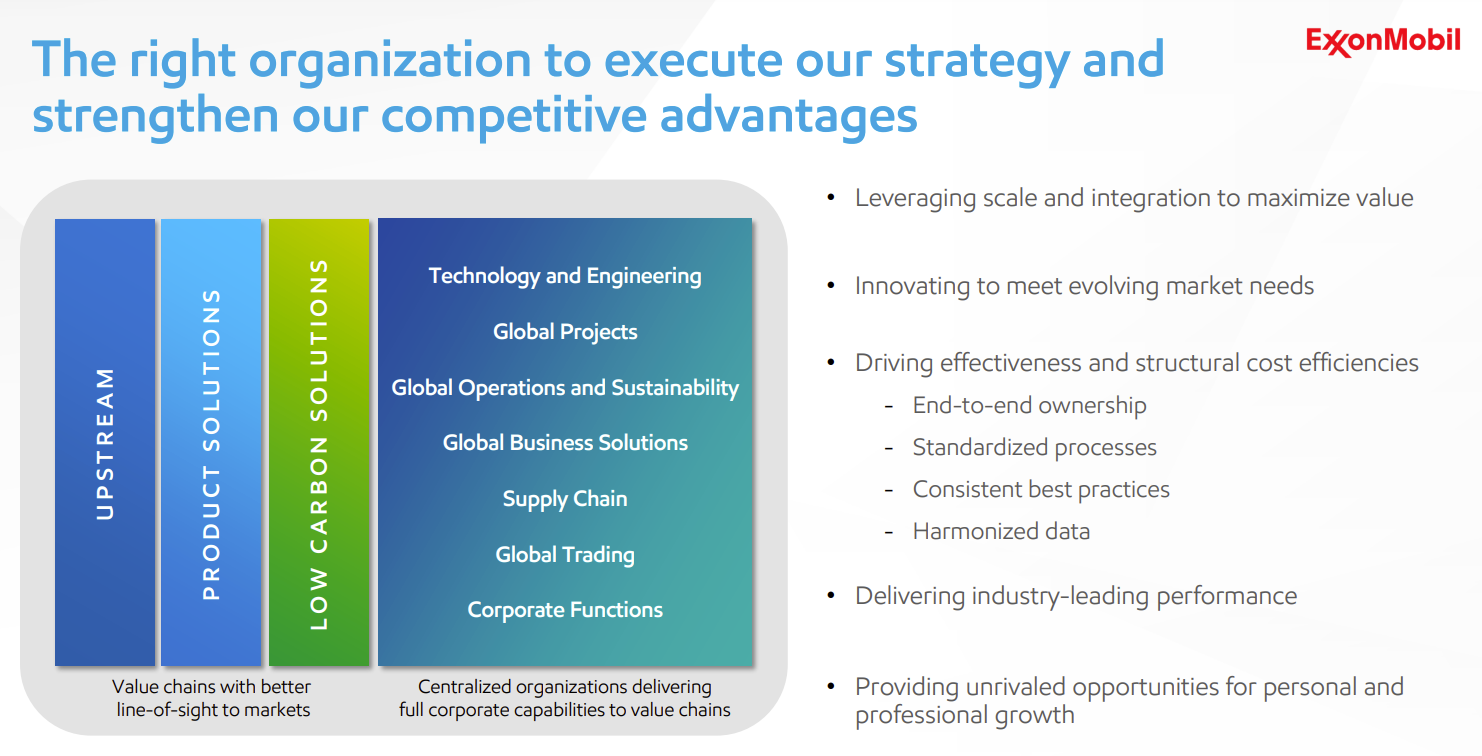ExxonMobil is looking to save $15 billion in operating costs by 2027 and it will leverage artificial intelligence in combination with process intelligence to get there.
During ExxonMobil's third quarter earnings call, CEO Darren Woods said the company would outline how it will leverage AI across the enterprise via its global business services (GBS) group. That unit is responsible for end-to-end processes across the company.
"The organization is getting more efficient and effective at the core task of driving value in the company," said Woods. "The technology side of the equation will drive a double effect of higher revenue and lower costs to improve profitability."
- How leaders need to think about AI, genAI
- Constellation Research's Connected Enterprise 2024: All the takeaways
On December 11, ExxonMobil will outline its AI and process transformation plans for investors. Woods said, "AI is part of the equation" and there's a "concerted effort to apply that new technology."
CFO Kathy Mikelis said AI is just one part of the mix. The company has been historically siloed and lacked standardized process. Those silos "made it more difficult to apply any single type of technology across the company."

She said:
"We'll be continuing to automate much of what we do today manually and that's going to drive improved efficiency and a way better experience for our people, our customers and our vendors. We're not always the easiest company to do business with when it comes to information technology and self-service. We have a pretty complicated IT environment we're in the process of simplifying to drive a much higher degree of automation into the business."
Speaking at Celonis' Celosphere 2024 event in Munich last month, John DiTullio, Process Transformation Executive in ExxonMobil's Global Business Solutions unit, highlighted how the company is putting in the technology that'll lead to more automation and process efficiency.
- Agentic AI without process optimization, orchestration will flop
- The art, ROI and FOMO of 2025 AI budget planning
- 13 artificial intelligence takeaways from Constellation Research’s AI Forum
- Enterprises leading with AI plan next genAI, agentic AI phases
"In ExxonMobil we talk in the B's not M's but to get to the billions you have to do it million by million," said DiTullio, who was an early adopter of Celonis' Process Intelligence Graph, which analyzes processes across an enterprise as well as the interdependencies.
DiTullio said ExxonMobil is using Celonis to better migrate from various SAP ECC6 instances to SAP S/4HANA. That IT transformation is one example where ExxonMobil is becoming more efficient, and there are many more said DiTullio.
Celonis is being used for multiple use cases including procurement, supply chain, logistics, maintenance, inventory and accounts payable and receivable to name a few by riding on top of various systems like SAP and Salesforce to optimize processes.
ExxonMobil is also a large Amazon Web Services customer and the stack includes Snowflake and a bevy of other vendors. Like any enterprise with the scale of ExxonMobil the company is trying to optimize a complex IT stack that includes one of everything.
"Value comes in many shapes and sizes and collaboration is enabled by leveraging scale and a common language to make decisions," said DiTullio. "Data speaks louder."
Although ExxonMobil won't outline its AI plans until next month, it appears that the data infrastructure and stage is set for AI adoption and more automation.


